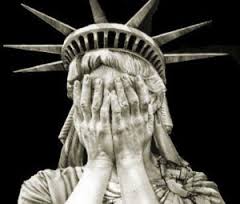 I was only half listening when the story began on NPR. But soon it was riveting. Abdi, a Somali refugee barely surviving in Kenya, struggling to reach America. Didn’t sound like he’d make it. Incredibly, he did.
I was only half listening when the story began on NPR. But soon it was riveting. Abdi, a Somali refugee barely surviving in Kenya, struggling to reach America. Didn’t sound like he’d make it. Incredibly, he did.
I was moved to write a poem. And to find Abdi to send him a gift. Then he authored a book and I was able to connect personally with him at a book fair. It was like meeting an alien from another planet.
 The book is Call me American. It begins on what does seem another planet, another epoch, with Abdi’s 1985 birth into a Somali nomad herder tribe. Drought forces the family into the city, Mogadishu. Abdi is six when it becomes Hell. The word seems inadequate. Thomas Hobbes wrote of the social compact forestalling the “war of all against all.” In Somalia in 1991 that social compact broke down, and that war exploded.
The book is Call me American. It begins on what does seem another planet, another epoch, with Abdi’s 1985 birth into a Somali nomad herder tribe. Drought forces the family into the city, Mogadishu. Abdi is six when it becomes Hell. The word seems inadequate. Thomas Hobbes wrote of the social compact forestalling the “war of all against all.” In Somalia in 1991 that social compact broke down, and that war exploded.
The family tries to escape Mogadishu, but ultimately winds up back there. Along the way Abdi’s father is taken by gunmen. They eventually meet up again; he’s a shell of his former self. His mother is pregnant. No way that baby will survive.
 Abdi’s sole education is Koran memorization, in a Madrassa run by a sadistic fanatic. But meantime he learns English by careful watching of American films; starts teaching English; becomes known as “Abdi American.”
Abdi’s sole education is Koran memorization, in a Madrassa run by a sadistic fanatic. But meantime he learns English by careful watching of American films; starts teaching English; becomes known as “Abdi American.”
Then the actual Americans arrive. “Ugly Americans?” Not to Abdi. But soon they’re gone, and Somalia goes from horrible to worse. The murderous warlord militias are supplanted by murderous hardline Islamists; and being “Abdi American” is no longer a good thing. Caught swimming with a girl at a beach, he’s sentenced to twenty lashes. Eventually he escapes to Kenya, where Somalis are hated and persecuted; it was jumping from the frying pan into the fire.
 Thomas Friedman writes of the “world of order” versus the “world of disorder.” And how the latter’s inhabitants are desperate to reach the former. Pessimists view civilization as a thin veneer upon underlying human beastliness, but it does enable “the better angels of our nature” to flourish. We take this too much for granted, and Abdi searingly depicts for us the other side of the coin.
Thomas Friedman writes of the “world of order” versus the “world of disorder.” And how the latter’s inhabitants are desperate to reach the former. Pessimists view civilization as a thin veneer upon underlying human beastliness, but it does enable “the better angels of our nature” to flourish. We take this too much for granted, and Abdi searingly depicts for us the other side of the coin.
He’s an excellent writer, his seemingly matter-of-fact tone effectively conveying the horror. Death is so constant and routinized, you have to remind yourself it’s actual people dying. Reading the account, in my comfortable chair in my comfortable American home, brought to mind philosopher Thomas Nagel’s famous essay, “What is it like to be a bat?” Its point was that we can’t really know. What was it like to be Abdi?
English was his salvation. Brazenly accosting a western journalist leads to his supplying stories to BBC radio, and then “Team Abdi,” a network of Brits and Americans helping him. That, plus extreme effort, and huge luck, does finally get him to America. Most in his situation would have failed.
Abdi writes that exiting the plane in Boston felt like an historic moment. “Like when the first man walked on the moon.” Airport TV screens were showing news of the Ferguson protests. To Americans this signaled something bad. To Abdi it showed a freedom to challenge police unimaginable where he’d come from. Then, in a car, instructed to buckle his seatbelt: “I couldn’t believe I was in a place where people actually obey laws.” From the world of disorder to the world of order.
 Most Americans today have no notion of this. For all their flag-waving, no grasp, indeed, of what this country is really all about. People like Abdi keep that idea alive. They make America great.
Most Americans today have no notion of this. For all their flag-waving, no grasp, indeed, of what this country is really all about. People like Abdi keep that idea alive. They make America great.
It’s fortunate he got here before Trump’s Muslim ban.
 We watched a PBS documentary about Yiddish writer Sholem Aleichem (1859-1916) — making me ponder what I feel as my personal identity.
We watched a PBS documentary about Yiddish writer Sholem Aleichem (1859-1916) — making me ponder what I feel as my personal identity. But when I wrote an autobiography, research indicated that isn’t likely. We may well have derived instead from the Khazars, a Central Asian people whose ruler, for some reason, decided to go Jewish around a millennium ago. (Making “anti-Semitism” a misnomer; the Khazars were not Middle Eastern Semites.)
But when I wrote an autobiography, research indicated that isn’t likely. We may well have derived instead from the Khazars, a Central Asian people whose ruler, for some reason, decided to go Jewish around a millennium ago. (Making “anti-Semitism” a misnomer; the Khazars were not Middle Eastern Semites.) Religion is a big element of that. And many Jews in America have — like me — eschewed the religion. A big issue for Fiddler’s main character Tevye was his daughter’s marrying a non-Jew. As many American Jews have — like me — also done.
Religion is a big element of that. And many Jews in America have — like me — eschewed the religion. A big issue for Fiddler’s main character Tevye was his daughter’s marrying a non-Jew. As many American Jews have — like me — also done. I feel spiritual kinship with all those who made the journey; the leaving behind and the creating anew. That indeed is the very essence of what America represents. This country was conceived as a new human beginning, free of all the stifling old baggage of the lands from whence we came.
I feel spiritual kinship with all those who made the journey; the leaving behind and the creating anew. That indeed is the very essence of what America represents. This country was conceived as a new human beginning, free of all the stifling old baggage of the lands from whence we came. Many Americans today, however, see their identities rooted not in such universal ideas and values but rather in an ethnic parochialism. Thus the hostility to those migrants who are the latest legions of “wretched refuse” knocking on our golden door. Thousands of children, taken away from their parents, are in detention camps, in horrible conditions. This cruel inhuman treatment, by an America that seems to have forgotten its own true identity, breaks my heart.
Many Americans today, however, see their identities rooted not in such universal ideas and values but rather in an ethnic parochialism. Thus the hostility to those migrants who are the latest legions of “wretched refuse” knocking on our golden door. Thousands of children, taken away from their parents, are in detention camps, in horrible conditions. This cruel inhuman treatment, by an America that seems to have forgotten its own true identity, breaks my heart. Olga Porterfield, a friend of mine, gave a talk to the Capital District Humanist Society, about Jewish refugees exiting the Soviet Union. She was one of them, at age 20, in 1979.
Olga Porterfield, a friend of mine, gave a talk to the Capital District Humanist Society, about Jewish refugees exiting the Soviet Union. She was one of them, at age 20, in 1979. Also subversive was the family’s “anti-Soviet” attitude; as a teenager she was reading “samizdat” — underground literature passed secretly from hand to hand. Being doubly such a rebel was heady stuff, especially when she fell in love with a boy with the same proclivities. But he was planning to leave for America.
Also subversive was the family’s “anti-Soviet” attitude; as a teenager she was reading “samizdat” — underground literature passed secretly from hand to hand. Being doubly such a rebel was heady stuff, especially when she fell in love with a boy with the same proclivities. But he was planning to leave for America.


 Eighty years ago, on the deck of ship passing the Statue of Liberty, stood my mother, a refugee from the Nazis.
Eighty years ago, on the deck of ship passing the Statue of Liberty, stood my mother, a refugee from the Nazis.
 That includes Jeff Sessions, John Kelly, and Sarah Huckabee Sanders, who continue trying to defend this monstrous policy. And it mainly includes the occupant of the desk where the buck stops. Who weaseled that it’s because of a “horrible law” allegedly passed by Democrats. That is nonsense. The law in question was passed in the George W. Bush administration — and does not require child separation. It was never so interpreted before. Trump is doubly criminal: presiding over this cruel travesty, and lying to blame political opponents for it.
That includes Jeff Sessions, John Kelly, and Sarah Huckabee Sanders, who continue trying to defend this monstrous policy. And it mainly includes the occupant of the desk where the buck stops. Who weaseled that it’s because of a “horrible law” allegedly passed by Democrats. That is nonsense. The law in question was passed in the George W. Bush administration — and does not require child separation. It was never so interpreted before. Trump is doubly criminal: presiding over this cruel travesty, and lying to blame political opponents for it. How low America has sunk. The words engraved on the Statue of Liberty — the high ideals of a great and good nation — have been made a cruel mockery. I had actually long feared America was heading for decline. But I never imagined the bottom falling out with such a swift bang.
How low America has sunk. The words engraved on the Statue of Liberty — the high ideals of a great and good nation — have been made a cruel mockery. I had actually long feared America was heading for decline. But I never imagined the bottom falling out with such a swift bang.

 It’s a lie that migrants cost us money. To the contrary, their productive efforts and talents add to our national prosperity. In fact, with an aging population (collecting ever more benefits) and declining workforce participation rates, we desperately need the new blood of immigrants to refresh our employment pool. It’s a major reason why America’s economy is fizzier than in other countries even less receptive to immigration.
It’s a lie that migrants cost us money. To the contrary, their productive efforts and talents add to our national prosperity. In fact, with an aging population (collecting ever more benefits) and declining workforce participation rates, we desperately need the new blood of immigrants to refresh our employment pool. It’s a major reason why America’s economy is fizzier than in other countries even less receptive to immigration.
 America was great because it was good. Now it’s breaking my heart.
America was great because it was good. Now it’s breaking my heart. This title was unavoidable. ICE stands for Immigration and Customs Enforcement. I have long referred to it as our Gestapo. And that was before Trump. Under Obama, 2.7 million were deported, and
This title was unavoidable. ICE stands for Immigration and Customs Enforcement. I have long referred to it as our Gestapo. And that was before Trump. Under Obama, 2.7 million were deported, and  Now the administration has issued new deportation guidelines. The idea of deporting all undocumented residents was always considered, well, crazy, at least if you have brains and human decency. Alas, those are not hallmarks of the Trump administration. The new guidelines target not only those having committed crimes, but even minor traffic offenses. And — get this — people merely “SUSPECTED” of offenses. (By who? On what basis?) How can that square with the 14th amendment, which says all “persons” (not just citizens) are entitled to due process of law. A noble assertion of what used to be America’s fundamental values.
Now the administration has issued new deportation guidelines. The idea of deporting all undocumented residents was always considered, well, crazy, at least if you have brains and human decency. Alas, those are not hallmarks of the Trump administration. The new guidelines target not only those having committed crimes, but even minor traffic offenses. And — get this — people merely “SUSPECTED” of offenses. (By who? On what basis?) How can that square with the 14th amendment, which says all “persons” (not just citizens) are entitled to due process of law. A noble assertion of what used to be America’s fundamental values. But in practice, ICE men now seem free to seek out and grab not just “bad hombres” but anybody. Like
But in practice, ICE men now seem free to seek out and grab not just “bad hombres” but anybody. Like  I get it that undocumented residents don’t have a legal right to be here. But many of them were brought as children and have lived their whole lives here. And many have minor children who are citizens. Don’t those kids have a basic human right to live with their parents? Deporting those parents is an extremely cruel, stupid, shamefully pointless policy that harms American children!
I get it that undocumented residents don’t have a legal right to be here. But many of them were brought as children and have lived their whole lives here. And many have minor children who are citizens. Don’t those kids have a basic human right to live with their parents? Deporting those parents is an extremely cruel, stupid, shamefully pointless policy that harms American children!
 While Europe is taking in around a million Syrian refugees, the U.S. has signed up for 10,000. But even that’s being challenged unless our government can guarantee no terrorists will sneak in.
While Europe is taking in around a million Syrian refugees, the U.S. has signed up for 10,000. But even that’s being challenged unless our government can guarantee no terrorists will sneak in.
 We fortunate cosseted Americans can scarcely even relate to the nightmare these people endure. Syria’s horror might seem far away, and its victims unlike us. But all human beings are far more alike than different. Syrians feel pain just like you or me; suffer anguish and fear just as you would; love their children just as much.
We fortunate cosseted Americans can scarcely even relate to the nightmare these people endure. Syria’s horror might seem far away, and its victims unlike us. But all human beings are far more alike than different. Syrians feel pain just like you or me; suffer anguish and fear just as you would; love their children just as much.









